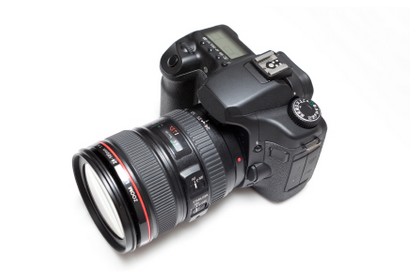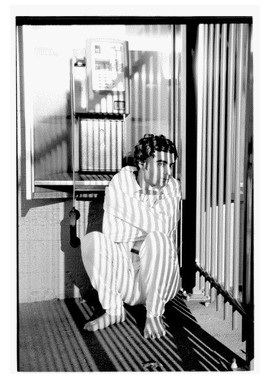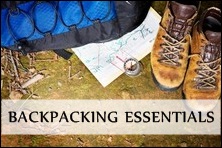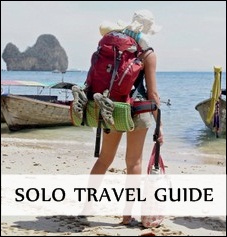Interview about
Travel Cameras
"Introduction to different travel cameras,
especially Canon Ixus Digital Cameras,
and how to pick your travel camera"
Quick links:
Compact, reflex and hybrid cameras
What to consider before purchasing a camera
Olympus, underwater cameras and underwater housing
Get insider-tips on how to choose a digital camera, and useful information on Canon digital cameras, lightweight cameras, under water cameras, photography tips and much more!
Other brands that will be discussed are Nikon, Sony, Casio, Pentax and Olympus underwater camera.
I don't know anything about cameras, especially travel cameras - so why not ask a camera geek...? ;-)
One of those camera geeks happens to be my camera expert cousin Andreios Belaza (I call him just Andros). When you talk to Andros about cameras, his eyes lit up and he can talk about it for hours.
Now THAT is what I call passion!
|
|
Well, just to sum up his background:
His passion for cameras and photography was awakened back in 1999.
That's when he got a part-time job at the well-known photo shop, called Japan Photo, here in Oslo. He sold all kind of cameras - from digital cameras to reflex cameras.
After this, he developed a huge interest for photography.
He attended a year at the Photo Art School in Oslo and got immediately busy with school projects.
His first project was a Fairtrade project where the theme was "Environmental Clothing - Recycling." He used a friend as a model who he dressed up in Fairtrade clothing.
Another project was the American Exhibition. His results were pictures of people drowning in their consumption of shoes.

His biggest lesson was to think outside the box, which resulted in great photos.
Otherwise, he has captured great photos at weddings (his friends and family always ask him because they know that he's great at taking photos), his travels to Europe and the daily life of the people around him and his dearest.
He likes to take pictures when people don't know it.
"I hate it when people pose in pictures and aren't themselves. I want the real thing and snap pics when people least expect it!"
Have in mind that the production of cameras accelerates fast these days! All the camera specifics written below is for year 2009.
1) First, Andros, I want you to tell us about the differences between the various cameras.
I think there are so many of them!
Haha, Amanda, you're right!
To simplify it, I can tell you that there are three groups of cameras:
- Compact cameras (the same as digital cameras)
- Reflex cameras and
- then the mix of these two, called hybrid cameras.
First, I'll tell you about the compact cameras:

Most people use compact cameras these days because they're small and practical to have in your pocket.
But the disadvantages can be the quality of the pictures because in order to snap great pictures, compact cameras require a lot of light.
While reflex cameras have different objectives and can have a wide angle of a motive. And these types of cameras are being used by professional photographers.
If you buy a reflex camera, you can add a camera house, change the optics, take excellent pictures of landscape, portraits, macro pictures (like if you want to zoom in on a flower and capture its details), and the response time from when you push the button to when it actually snaps the picture is faster than compact cameras.
Hybrid cameras - perfect as travel cameras?
When it comes to hybrid cameras, it's a mix of compact and reflex cameras.
If you think a reflex camera is too flashy or too high tech, and you want better pictures than what compacts can manage, you might try a hybrid camera.
With hybrid cameras, you have a better option of taking better and sharper pictures because they have larger optics than the compact cameras. But you don't have the opportunity to change the optics as with reflex cameras.
An example of hybrid cameras is the Canon PowerShot. Their weight can start from just 100 gram!
2) What should travelers think about
before they buy a camera?
They should ask themselves these questions:
- What kind of photographer are you? What is the purpose of your trip?
You need to look at your experience level with cameras.
Are you new to cameras and photography, and just want to take pictures? - I suggest you go for a compact digital camera!
Are you a professional photographer? Do you want to take nature pictures like National Geographic? - I suggest you try the reflex cameras. They're more fun to take pictures with because they have extra functions.
On the other hand, reflex cameras takes extra space and weight in your luggage, and you might need a own travel camera bag for these.
Are you going to dive and snorkel a lot? - The best option is to research the possibility of renting an under water camera at the dive shop. If this is possible, then problems are solved! Then you don't need to bring your own underwater camera!
Other options are to buy an underwater camera, or a compact digital camera with underwater housing!
- How much money do you want to spend on a camera? The cheapest camera you can get is a compact digital camera. For example, Canon has nice-price on their travel cameras.
- What type of photography will you be doing? As a traveler, you're probably going to take pictures of landscapes, people and zoom on interesting things like the rare tree in Cambodia or something.
- How important is size and portability for you?
The bigger the camera gets, the heavier it usually gets. Remember that if you settle for the 'big guns', you'll be carrying it with you the whole time.
You're probably going to need an extra camera bag just for the camera and the equipment, on top of your backpack. And storing your camera at a hostel, isn't always the safest thing to do, if you know what I mean... ;-) Insurance, is all I can say!
- Do you need extras?
To save money, look at the things that you already have. How are you going to carry it? - Do you need a bag? Need an extra battery, lens?
- Do you want to learn the art of photography at the same time?
- In what conditions are you going to be photographing in?
If it's the monsoon season, an option is to choose a water-proof camera.
3) What can you recommend
when it comes to lightweight travel cameras?
And what are the advantages and disadvantages
about these?
Canon is definitely the leading brand when it comes to lightweight compact cameras! The lightest cameras I've tried personally are Casio and Canon Ixus. And Ixus is my favorite!
The Canon compact travel cameras are:
|
|
- Very robust
They can handle rough travel and have a long duration (up to 3-4 years). So you save money by owning an Ixus camera!
- They're light!
- And despite its small size, it takes sharp pictures and that's impressive! I haven't seen other cameras that take sharp pics as Ixus does.
- Good user friendliness
It's designed for all kinds of people at any age and gender. You don't need to search long to find the right button, and all the buttons have actually a useful function!
- Canon has also a viewfinder
A viewfinder saves power for the screen, so you don't need to load the batteries that often. Loading you batteries while you're in the jungle can be tricky if there's no electricity to be found around.
- Have a nice design
And you asked about the disadvantages about the Ixus cameras?
- Hmmm tough one because it's my favorite! ;-)
The only thing that I can come up with is the 5 times optical zoom. If you have a low optical zoom, the picture will get grainier the more you zoom. But then again, this doesn't apply to only Ixus - this applies to all brands of cameras.
When it comes to Casio, it's so small that you can fit it in your pocket, and it's lightweight!
The disadvantage about Casio is probably the menu.
I personally think that the menu on Casio compacts is a disaster! And the screen can be experienced as grainy. Casio doesn't have the same user friendliness as Canon Ixus. But at the same time, Casio has a lot of functions that's fun to play with. It's a good and light camera, but not a camera that I would want to recommend!
But if you want the lightest camera in the market, that has to be Sony's compact cameras.
Sony cameras are light because they're so thin, and another plus side is the large screen. But these cameras don't have large optics. You have a larger chance of taking nice pictures of places with poor light, if you actually have larger optics.
I think that's important when you're traveling, whether you're caving, taking sunset pics or walking in the shades of jungle trees.
4) During your career,
which camera brands have you sold the most of?
When it comes to compact cameras, I've sold tons of Canon Ixus!
And Nikon is the leading brand in our store when it comes to reflex cameras. We sold so much of these since they first arrived in the market in year 2000! The sales hasn't exactly stopped!
I can tell you that in the past couple of years, I've noticed that customers are keener on travel cameras that can take sharp pictures and have a quicker response time.
The compact cameras over the years have improved their response time, and you don't need to wait for like, 5 minutes before it can snap a picture. When you're traveling, it's important that the camera reacts the second you push the button.
How many of us hasn't experienced that the perfect picture moment disappeared because the camera was too slow?!
- I just hate that!
For example, I recommend Ixus 75 which I used a lot last year (2008). It's small and works excellent even though there's poor light. This results in great pictures!
5) Except for Canon Ixus, do you know of
other camera brands worth mentioning
and that are handy for traveling?
Canon is again the leading brand among travel cameras. The competitors are Nikon and Olympus!
Olympus as you know, have great under water cameras. These cameras are waterproof, and are excellent for those days when it's raining during your backpacking trip.
On the other hand, Olympus cameras have limited sharpness because the diameter on the lens is smaller. So I'm afraid that they don't have the same quality as for example a Powershot.
If I were you, I would bring two cameras: a compact camera and a underwater camera!
But if you can't afford both, you can buy a underwater housing for Ixus or Powershots (you can get underwater housing for other brands and models as well).
I borrowed my friend's underwater housing for Canon Ixus 70 in 2008, and it worked perfectly fine! I got some really interesting pictures!
You can get underwater housing for various depths: starting from 10 and up to 40 meters I think.
Other underwater camera brand is Pentax, which is the competitor of Olympus (there are of course other brands). Pentax has existed for a long time, since the 60s or the 70s.
Like, Pentax 80 is a small and light camera, and it's almost as good as Ixus. But the pictures are more grainy, and the Pentax cameras don't have the same color tones as Ixus.
6) Isn't it just cheaper to
buy a single-use underwater camera?
The plus sides are:
It's of course cheap and lightweight, that's for sure! And it might suit well for travelers who are going snorkeling on a sunny day.
On ther other hand, single-use cameras are not the best option for divers and snorkelers who want to take quality pictures.
Let me tell you why...
If you use single-use camera:
- You usually get grainier pictures (they're cheap for a good reason!)
- They often don't capture the motive at all
It can be hard to take a picture right when you're underwater, or it's hard to take a picture because it's too dark! The ocean is full of dark spots and corners!
- And people forget or don't know that the film roll of single-use cameras has a short duration and it's fragile. Too much light or heat can accelerate the process of becoming useless (even if it should last for a year!)
I personally don't think that single-use cameras give you the full benefit.
Return to top of Travel Cameras
7) Do you have any tips for my readers
when it comes to taking
care of their travel cameras?
Oh, yeah, I was waiting for you to ask! :-P
We can start with memory cards. A lot of customers have asked me how they can take care of their memory cards.
Well, I can't say this enough:
Taking care of your memory card is VERY important! Memory cards are often the part of the camera that people take for granted.
It's maybe your only backpacking trip, so it's essential that you take extra good care of it. You have to take precautions, and protect it like it was your own passport. Whether it accidentally falls into the water or you just lose it, it can be expensive or impossible to recover the pictures. And when you're traveling, you never know if your camera might get stolen.
I'm going to ask you this:
If you had to pick between the camera itself or the memory card with loads of pictures, which one would you choose?
The memory card of course!
So this is what you do:
- Take out the memory card before you go to bed, and put it on a safe place.
- When you're not using it, put the memory card in a water-proof bag. Remember that whether you put in your day bag or backpack, they can still get wet !
- I suggest that you bring several memory cards for the trip, and then store them separately. If you lose one, you have at least the other one.
Memory Card Brands:
There are several brands you can choose from: Transcend, the cheap Kingston and Lexar which I think is the ultimate memory card brand!
Lexar memory cards have a large storage capacity and has fast download from card to computer! When you're backpacking and you're in a hurry, you don't want to wait forever for the pictures to upload on the computer screen. It definitely saves time.
And speaking of memory cards, I have a tip when it comes to loading the batteries for your camera!
I suggest that travelers should bring two batteries. When you're in the jungle and trekking for a long time, it's a shame if you miss out on capturing great experiences just because you ran out of battery... And you don't need two cords, but two batteries.
8) How many megapixels
do you recommend for a travel camera?
A couple of years ago, 5 megapixels were the big shit!
Now you can get up to 14-15 megapixels for compact digital cameras, and even higher for reflex and hybrid cameras. The higher megapixels you have, the sharper your pictures can get. I believe that 10 megapixels is the common number to choose now.
Updated on April 23, 2012: Now you can get digital cameras with MP of 18!
But please have in mind that new models are released every year and they acquire higher megapixels by the year. And if you want many megapixels, you have to expect to pay more money for it.
9) Do you have any tips on
how to take the best pictures?

To me, I have the rule of three: Motive, composition and background.
I'll give you an example!
Imagine yourself taking a picture of a friend in front of a landscape when sunset is about to begin.
The common mistake here is to use flash when there's a sunset or sunrise.
Why do it when there's enough light?!
When you take pictures with the flash on, you only get the foreground and lose the background.
The background you lose in this example would be the sunset/sunrise itself, the beautiful colors and the sun's light. You flatten out the picture when you use the flash.
So if you want more realistic and interesting pictures, turn off the flash in broad daylight.
And another tip is to hold the camera still when you're taking pictures. Even the best camera can take a lousy picture, if the person holding it doesn't have steady hands.

And then it's the composition.
When you take a picture, make sure you get an overall picture, capturing not only the motive, but also the surroundings.
I'm going to mention a tip which might seem insignificant at first, but it actually helps a picture a lot
When you take group pictures of people - like, a group of travelers, remove everything that can disturb the background (the people) like unnecessary mess. Even a beer bottle in front of the motive can disturb the background.
Another tip worth mentioning is to take pictures of your surroundings. Don't just take pictures where you just want to state: "I've been here."
If your camera is newly purchased, bring the manual for your trip! Get to know the different functions, so you can get the full benefit of your camera!
|
Further reading: |
Like this page?
|
Return to top of Travel Cameras
Follow This Site
Search this site
Most popular articles
» Travel Forum: Itineraries
» Travel Insurance
» Nightlife in Kuala Lumpur
» Route Planner
» Packing List
» Life After Backpacking
» Kuala Lumpur Malaysia
» Perhentians Malaysia
» Review of massage in Kerala
» Review of Erawan waterfalls/
Connect with us








Comment this page:
Have your say about what you just read! Leave me a comment in the box below.